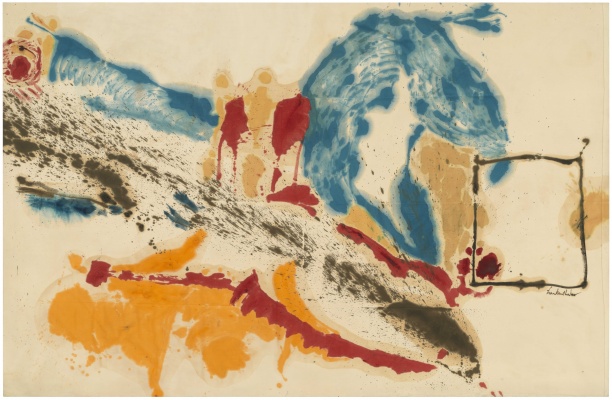Descripción de la Exposición
MASP – Museu de Arte de São Paulo Assis Chateaubriand presents, from February 23 to April 14, 2024, in the museum's 2nd basement floor, Video Room: Masi Mamani / Bartolina Xixa, exhibits Ramita Seca, La colonialidad permanente (2019), Bartolina Xixa, una drag de La Puna (2019) and Crudo (2020). Curated by Matheus de Andrade, curatorial assistant at MASP, the works record a series of performances by the Argentine artist, which denounce colonial structures at the intersection between her anthropological research, personal experiences and artistic expression.
Masi Mamani (Jujuy, Argentina, 1995) is an artist, dancer and teacher of traditional dances in the Jujuy region of the Argentine Andes. Since 2017, she has been developing performances and videos that explore drag queen language, bringing to life Bartolina Xixa – a reference to the Aymara indigenous leader Bartolina Sisa Vargas (Corregimiento de La Paz, Bolivia, circa 1750 – La Paz, Bolivia, 1782), who led revolts for the freedom of her people and was brutally murdered by Spanish colonizers in the 18th century.
Bartolina Xixa is defined by Mamani as a “diverse drag queen,” who challenges the stereotypes and conventional patterns of the drag universe by incorporating traditional elements of Andean indigenous culture. With a strong symbolism, she assumes the identity of a “chola,” a term of Quechua and Aymara origin currently associated with Andean women who adopt traditional clothing and adornments. In doing so, she claims her ancestral roots, while at the same time denouncing the persistence of coloniality today.
Ramita Seca, La colonialidad permanente [Dry Twig, The Permanent Coloniality] is filmed in an open dump in the Quebrada de Humahuaca, an indigenous territory and World Heritage site. This degraded setting contrasts with the richness of the clothing, inspired by the cholas paceñas, indigenous women who dress in typical costumes such as colorful skirts, embroidered blouses, shawls and elegant hats. Bartolina dances to the sound of a Vidala, traditional Andean poetry sung and danced with drums, which denounces the persistence of colonial structures, such as environmental devastation and the exploitation and persecution faced by the region’s indigenous populations.
In the documentary Bartolina Xixa, una drag de La Puna [Bartolina Xixa, a Drag From La Puna], the artist describes how Bartolina emerged breaking beauty standards linked to hegemonic Western representations of femininity in the drag universe and explores her people’s ancestry and traditions through sexual dissidence. In Crudo, Mamani also criticizes institutional spaces. Curator Matheus de Andrade points out that the title refers to the “raw” as something to be prepared and consumed, alerting us to approaches to queer and indigenous identities in cultural spaces as exotic products to be consumed by the public. “The plastic that surrounds the bodies symbolizes suffocation, but it also acts as a manifesto of resistance, demanding more horizontal and inclusive relationships so that dissident bodies can breathe and exist fully in these spaces,” he adds.
Video Room: Masi Mamani / Bartolina Xixa kicks off the 2024 Video Room program, which is themed on the Histories of LGBTQIA+ diversity at MASP and, throughout the year, includes exhibitions by Tourmaline, Ventura Profana and Manauara Clandestina.
ABOUT MASI MAMANI
Masi Mamani is an artist born in 1995 in the Argentine Andes, in the city of Jujuy. She currently works as a dancer, performer and artisan, and is part of the LGBTQIA+ community in the Quebrada de Humahuaca region, located in the province of Jujuy, northwest Argentina, on the border with Bolivia and Chile. She studied anthropology at the National University of Salta and was awarded a scholarship from Argentina’s National Arts Fund. She participated in the 11th Berlin Biennale of Contemporary Art, Germany, 2020; was awarded a Special Mention in the national documentary section at the International Festival of Cortometrajes de la Cuenca del Salado - Rauch, Buenos Aires (2020) and at the CORTES Festival - Acción Mujeres del Cine, in Morán, Argentina (2020); as well as participating in Colour’s of Love - International Queer Film Festival, India (2021) and Les Mains Gauches - Queer Feminist Short Movies, Marseille, France (2021).

Exposición. 11 abr de 2025 - 28 sep de 2025 / Museo Guggenheim Bilbao / Bilbao, Vizcaya, España

Formación. 08 may de 2025 - 17 may de 2025 / Museo Nacional Centro de Arte Reina Sofía (MNCARS) / Madrid, España